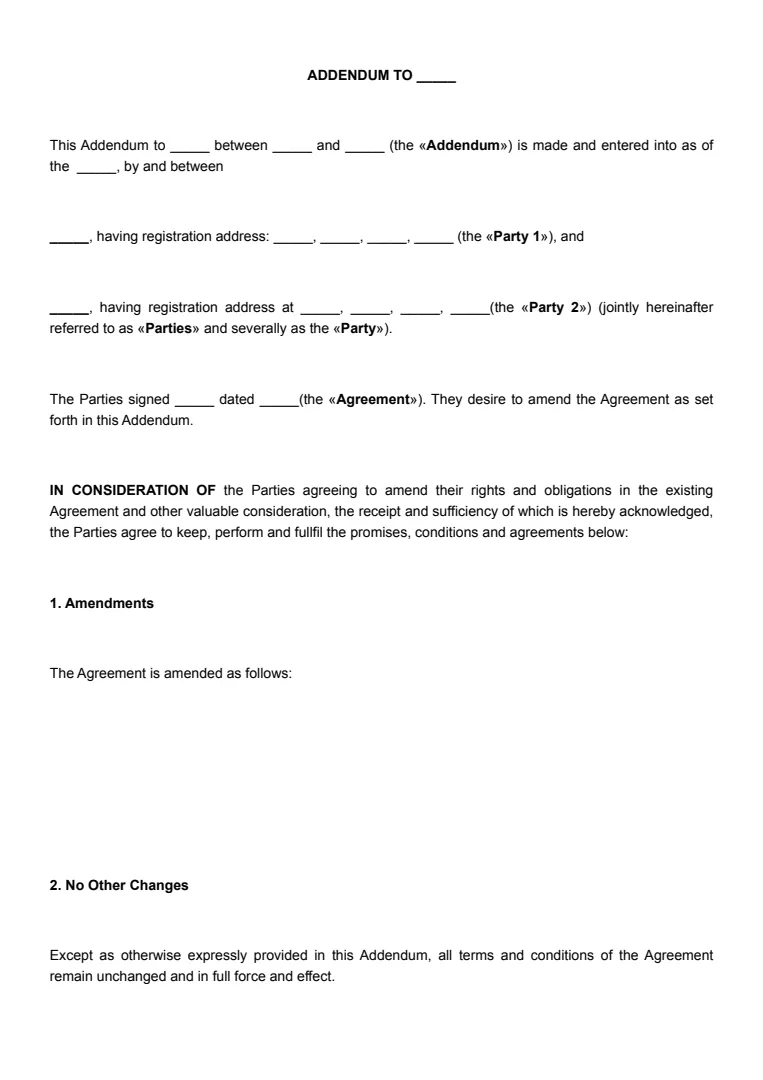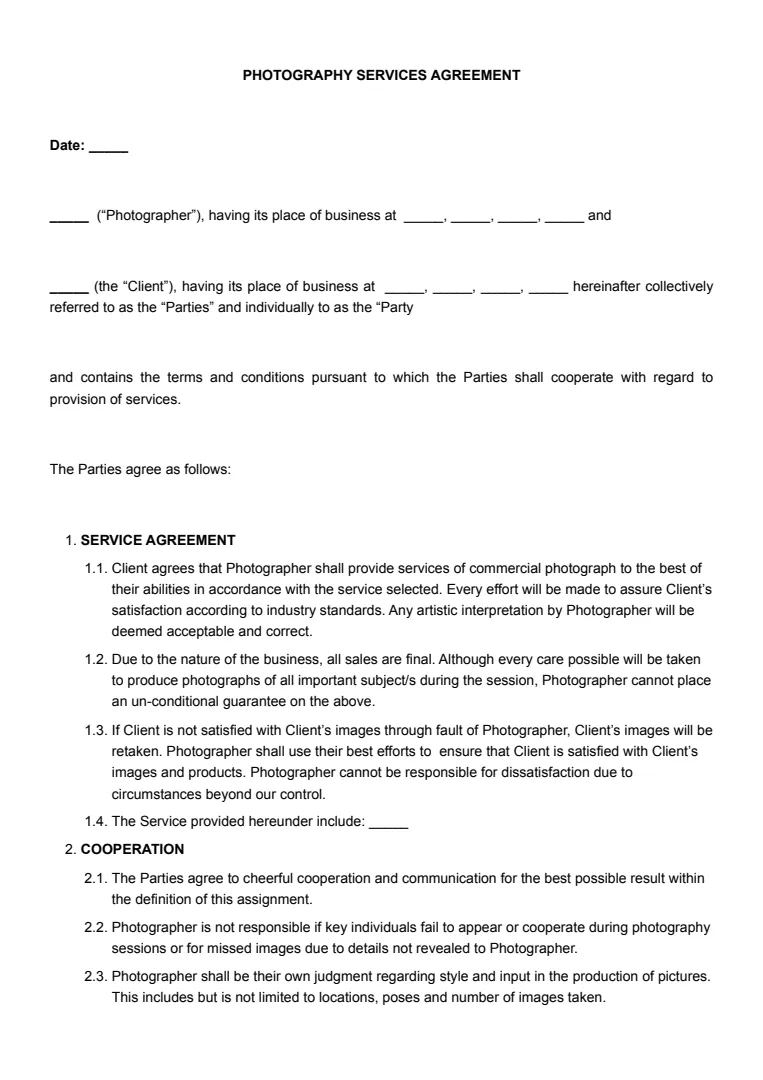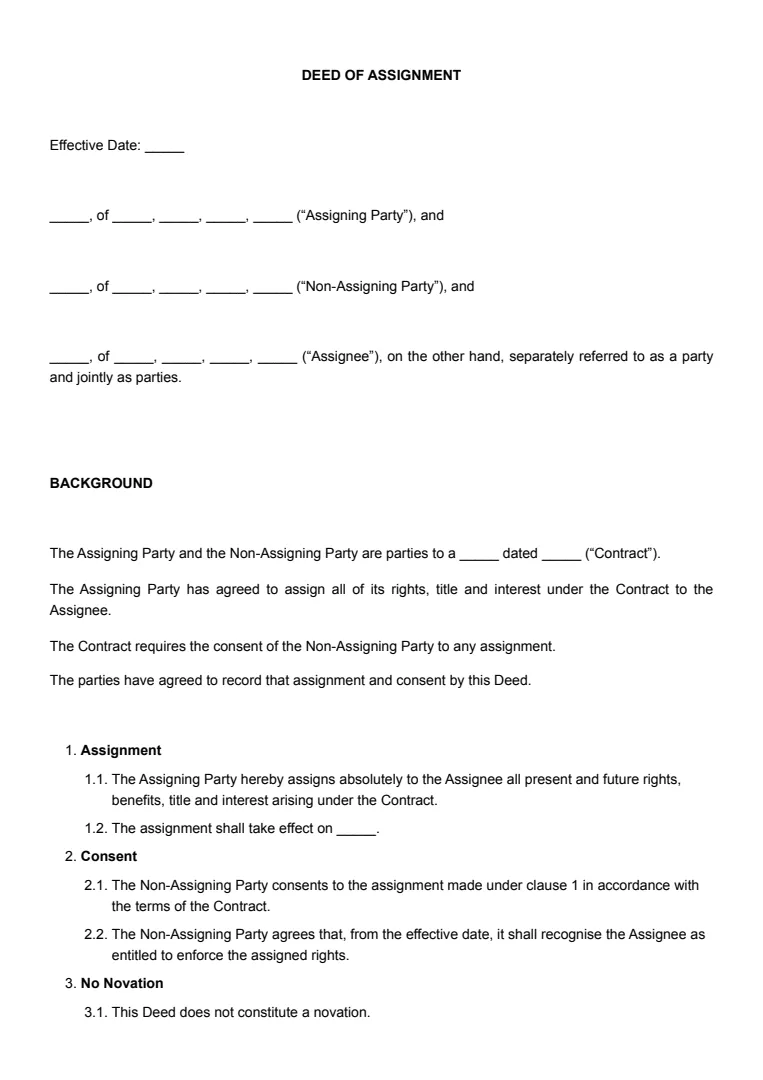What Is a Services Agreement?
A services agreement (also called a contract for services, service agreement contract, or services contract template) is a legally binding document that governs the arrangement between a service provider and a client.
It sets out the services to be delivered, the agreed terms, and the cost.
In the UK, the rules governing services agreements come from both common law and specific statutes. For example:
- Consumer Rights Act 2015 – applies when the client is a consumer and gives them rights to services performed with reasonable care and skill.
- Supply of Goods and Services Act 1982 – applies mainly to business-to-business contracts and requires services to be carried out within a reasonable time if no time is set.
- Data Protection Act 2018 and UK GDPR – relevant if the services involve handling personal data.
A services agreement is different from an employment contract. The former governs an independent contractor or business–client relationship, which affects tax treatment, rights, and liabilities.
For example, if a web development agency is hired to create a site for a retailer, the agreement defines deliverables, deadlines, and payment without making the agency’s staff employees of the retailer.
When Should You Use a Services Agreement?
You should use a services agreement any time professional services are being provided in exchange for payment, especially where the arrangement involves ongoing work or higher-value projects.
1. Freelance or Consultancy Projects
If you work as a consultant, designer, copywriter, software developer, or other freelancer, a written contract for services ensures both you and your client agree on deliverables, deadlines, and payment terms before work starts.
Example: A freelance graphic designer hired to create a brand identity specifies in the agreement the number of logo concepts, revision rounds, and delivery formats, along with a staged payment schedule.
2. Business-to-Business Service Arrangements
Many companies outsource services such as cleaning, catering, IT support, or security. A written agreement helps protect both sides; the provider secures their right to payment, and the client secures the right to receive services to a certain standard.
Example: A facilities management company contracted to maintain a chain of offices uses a services agreement to set inspection schedules, maintenance tasks, and reporting requirements.
3. Specialist Technical Services
Where the work is highly technical or regulated, a services agreement should be even more detailed. It should set out technical standards, compliance requirements, and liability limitations.
Example: An electrical contractor installing equipment for a factory must reference compliance with the Electricity at Work Regulations 1989, list inspection procedures, and state who bears the cost of remedial work.
Expert Tip:
“Technical projects fail most often because the specification is vague. The scope should be so detailed that neither side has to guess what’s expected.”
4. Short-Term Projects With High Risk
Even if the work is short, if the potential for disputes or high-value loss exists, put it in writing.
One-off photography assignments, single-day training events, or urgent repair work can all benefit from clear terms.
How to Write a Services Agreement
Clarity is the key to a strong services agreement. Here’s a step-by-step process for drafting a contract for services template, UK:
Step 1: Identify the Parties
Use the correct legal names and addresses for both the service provider and the client.
For companies, include their registered number and registered office address.
Step 2: Define the Scope of Services
Describe exactly what will be done, when, and to what standard in your sample contract for services.
Avoid generalised language like “provide IT support” without specifying hours, channels, and response times.
Step 3: Set Payment Terms
Your contract for services template should state the amount, timing, and method of payment. Specify if VAT applies.
Under the Late Payment of Commercial Debts (Interest) Act 1998, you can claim interest and recovery costs on overdue payments, so consider including this right.
If you want to skip manual drafting, Legally.io’s document generator can create a compliant services agreement in minutes, tailored to UK law and your industry.
Step 4: Allocate Responsibilities
A model service contract should clarify what each party must do to fulfil the agreement, such as providing materials, approvals, or site access.
Step 5: Include Termination Clauses
In your services contract template, set out how the contract can end, including required notice and the consequences of early termination. Specify what happens to payments and deliverables if the work stops early.
Step 6: Add Legal Protections
A service agreement contract should cover confidentiality, intellectual property, liability limits, and governing law. For most UK contracts, the governing law is that of England and Wales.
Expert Tip:
“Always include a confidentiality clause in a contract template for services, even for seemingly low-risk projects. Trade secrets and client data can be more valuable than the work itself.”
What Should a Services Agreement Contain?
A good services agreement template should include:
1. Parties’ Details
Full legal names, addresses, and company registration numbers.
2. Service Description
A detailed account of the work, timelines, and deliverables.
3. Fees and Expenses
Payment amounts, schedules, and expense rules, including pre-approval requirements.
4. Duration and Termination
Start and end dates, notice periods, and grounds for early termination.
5. Intellectual Property Rights
Specify ownership and licensing rights for any work created.
6. Confidentiality
Rules for handling sensitive information.
7. Liability Limitations
Caps on damages, while complying with the Unfair Contract Terms Act 1977.
8. Dispute Resolution
Whether disputes go to mediation, arbitration, or court first.
9. Governing Law
Typically, English law applies to UK-based contracts.
Legally.io’s free service agreement template already includes all these clauses, saving you hours of drafting and reducing the risk of missing critical protections.
Legal Tips for Services Agreements
- Be precise with deliverables - ambiguity can be interpreted against the party that wrote the contract.
- Check industry regulations - financial services may require FCA compliance; healthcare may require CQC registration.
- Review regularly - laws and market conditions change.
- Include data protection clauses - if personal data is involved, ensure compliance with UK GDPR.
Expert Tip:
“A clear dispute resolution clause can save thousands in legal costs. Mediation before litigation is often the smartest route.”
Key Takeaways
A services agreement is a legally binding contract that defines the scope of services, payment terms, responsibilities, and protections between a provider and client.
It is essential for freelancers, consultants, and businesses because it helps prevent disputes, manage expectations, and ensures compliance with UK laws such as the Consumer Rights Act 2015 and the Data Protection Act 2018.
A well-drafted agreement should include clear details on deliverables, payment schedules, termination rights, confidentiality, intellectual property, and liability limits.
By using a structured template, businesses and professionals can reduce risk, increase clarity, and safeguard both parties in service arrangements.















